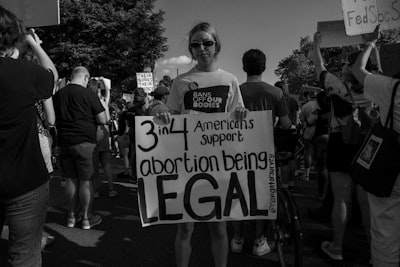Overview
Fetal personhood laws are statutes or constitutional amendments that confer some or all legal rights and protections of a person on a fetus, typically from the point of conception or a specific stage of development. These laws have significant legal, ethical, and medical implications, especially in the context of abortion, maternal health care, and end-of-life decisions involving pregnant patients.
Historical Background
The concept of fetal personhood has evolved over time within the legal and political spheres. Historically, common law and early U.S. legal traditions did not treat fetuses as persons with full legal status. However, since the latter half of the 20th century, some states have enacted laws or amendments seeking to redefine personhood to include unborn children.
Legal Definitions and Variations
Fetal personhood definitions vary by jurisdiction. Some laws grant personhood from the moment of fertilization, while others set the threshold at fetal viability or at a specific gestational age. These definitions affect how other laws—especially those related to abortion, wrongful death, and end-of-life care—are interpreted and enforced.
Implications for Abortion Law
Fetal personhood statutes are central to the abortion debate in the United States. By defining a fetus as a person with legal rights, these laws can restrict or ban abortion procedures and limit exceptions, such as those concerning maternal health or fetal abnormalities. Following the Supreme Court’s 2022 decision in Dobbs v. Jackson Women’s Health Organization, several states have enforced or introduced fetal personhood measures more vigorously.
Impact on Maternal Health and Medical Ethics
Personhood laws may affect decisions in cases where pregnant individuals are incapacitated or declared brain-dead. In such instances, medical providers and families may be legally required to maintain life-sustaining treatment to preserve the fetus until delivery, even if it conflicts with the patient’s prior wishes or standard medical practices. These situations raise complex ethical questions regarding autonomy, physician obligations, and the definition of death.
Notable State Examples
- Georgia: Enacted legislation in 2019 recognizing embryos and fetuses as "natural persons" for many legal purposes.
- Alabama: Approved a constitutional amendment defining personhood from conception.
- Missouri: State laws refer to life beginning at conception for certain legal analyses.
Criticism and Support
Support
Advocates argue that fetal personhood laws protect the rights of the unborn and reflect moral and philosophical views on when life begins.
Criticism
Critics contend that such laws undermine pregnant individuals’ rights and access to care, as well as potentially conflict with medical ethics and standards of care.
See Also
- Roe v. Wade
- Dobbs v. Jackson Women’s Health Organization
- Abortion law in the United States
- Living Will
- Advance Directive
References
- Guttmacher Institute. (2023). Overview of Abortion Laws.
- American College of Obstetricians and Gynecologists. (2022). State Legislation Impacting Maternal Health.

Comments
No comments yet. Be the first to comment!